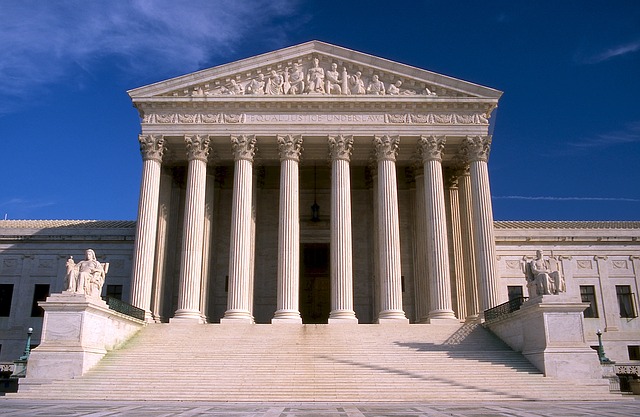
Supreme Court Will Hear Arguments About Requirements For Pro-Life Pregnancy Clinics
The Supreme Court is hearing arguments in a controversial case centered on the rights of pro-life pregnancy clinics. The National Institute of Family and Life Advocates (NIFLA), a non-profit organization made of over 1,000 pro-life pregnancy resource centers, is challenging California over the state’s Reproductive Fact Act, a law that forces pro-life clinics to provide information about abortions to their patients.
The Reproductive Fact Act, passed in 2015, requires licensed health centers in the state of California, including pro-life centers, to have notices that inform female patients about the availability of contraception, abortions, and other state-based programs. According to the state of California, the law was passed with the intent of providing information to patients which would give them the greatest opportunity to make an informed and healthy choice; however, NIFLA is not convinced of the law’s objectivity.
Supreme Court Case Could Change Both Abortion and Religion In America[/tweetthis]
At the heart of the issue is the pro-life centers’ protections under the First Amendment, which would seemingly guarantee the right to withhold information from patients that is contrary to the center’s values. In this case, NIFLA argues that their advocacy for pro-life options for women is being infringed upon by the Reproductive Fact Act since the centers must offer information on local abortion services. From their standpoint, the lawyers for NIFLA believe this constitutes a First Amendment violation because it is tantamount to the government compelling the clinics to speak out against their own beliefs or face government-imposed penalties.
California Attorney General, Xavier Becerra, argues that the Reproductive Fact Act is simply a logical extension of the medical principle of informed consent. Informed consent laws uphold the idea that patients have the right to know the benefits, options, and risks of their treatment beforehand. Therefore, the state argues that information about abortion, contraception, and other options that pro-life facilities might find objectionable should not be kept from patients simply because they chose to go to a pro-life pregnancy center.
Although the Reproductive Fact Act may have been drafted with the best intentions, the lawyers for NIFLA are also presenting the possibility that pro-life clinics are being unfairly targeted under the law. The accusation stems from a portion of the law that forces advertisements for any unlicensed, non-emergency centers to have a disclaimer regarding the non-medical professional status of the center in over a dozen languages.
The lawyers argue that the disclaimers actively turn people away from the pro-life pregnancy centers by disparaging its offerings because of their pro-life stance, even if they are attempting to provide women with shelter, formula, and diapers. The requirement for this disclaimer portion of the law is one particular element of the NIFLA v Becerra case that has gotten particular attention and could be a critical factor in the coming decision because of the apparent targeting of pro-life centers.
Ultimately, the Supreme Court will have to consider whether it is legal for the government to make pro-life organizations provide information for abortion services, even if it is done in the interests of helping vulnerable women. Additionally, the court will need to decide whether it is best to force the pro-life disclaimers on organizations which are attempting to provide aid to desperate people, essentially pushing people away from resources because of the beliefs of the agency. The decision for NIFLA v Becerra is expected to be made in June 2018.
